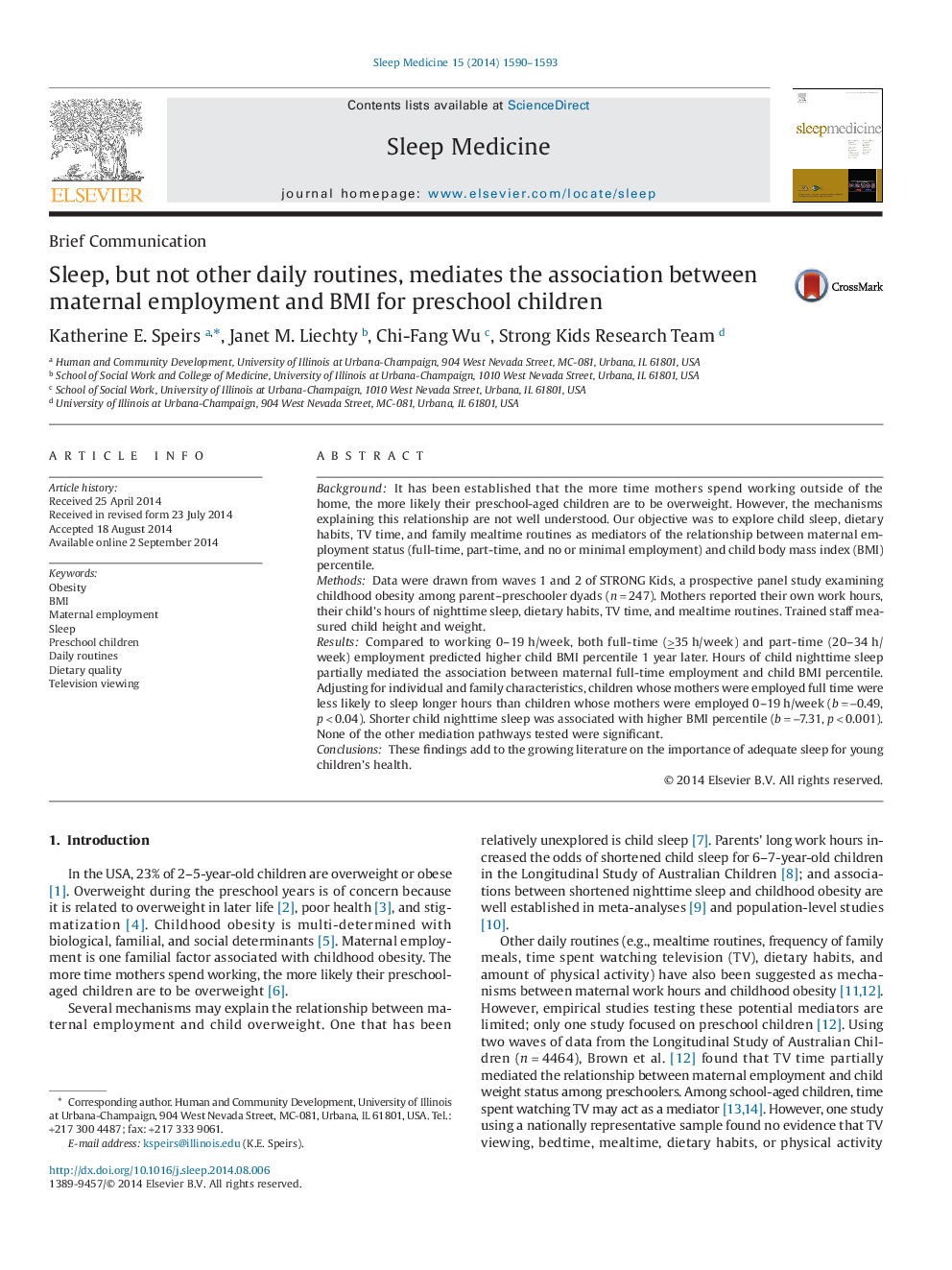| کد مقاله | کد نشریه | سال انتشار | مقاله انگلیسی | نسخه تمام متن |
|---|---|---|---|---|
| 3176027 | 1200240 | 2014 | 4 صفحه PDF | دانلود رایگان |

• Maternal employment predicts higher child BMI percentile a year later.
• Child sleep hours partially mediate the link between maternal work and child BMI.
• Other family routines did not mediate the link between maternal work and child BMI.
BackgroundIt has been established that the more time mothers spend working outside of the home, the more likely their preschool-aged children are to be overweight. However, the mechanisms explaining this relationship are not well understood. Our objective was to explore child sleep, dietary habits, TV time, and family mealtime routines as mediators of the relationship between maternal employment status (full-time, part-time, and no or minimal employment) and child body mass index (BMI) percentile.MethodsData were drawn from waves 1 and 2 of STRONG Kids, a prospective panel study examining childhood obesity among parent–preschooler dyads (n = 247). Mothers reported their own work hours, their child's hours of nighttime sleep, dietary habits, TV time, and mealtime routines. Trained staff measured child height and weight.ResultsCompared to working 0–19 h/week, both full-time (>35 h/week) and part-time (20–34 h/week) employment predicted higher child BMI percentile 1 year later. Hours of child nighttime sleep partially mediated the association between maternal full-time employment and child BMI percentile. Adjusting for individual and family characteristics, children whose mothers were employed full time were less likely to sleep longer hours than children whose mothers were employed 0–19 h/week (b = −0.49, p < 0.04). Shorter child nighttime sleep was associated with higher BMI percentile (b = −7.31, p < 0.001). None of the other mediation pathways tested were significant.ConclusionsThese findings add to the growing literature on the importance of adequate sleep for young children's health.
Journal: Sleep Medicine - Volume 15, Issue 12, December 2014, Pages 1590–1593